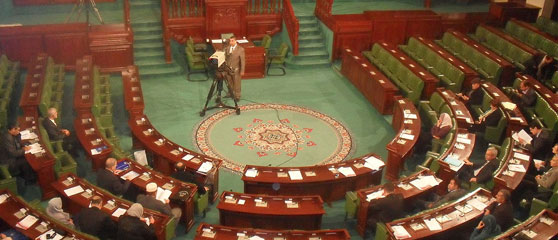Prisoners convicted of drug offences in Belarus are being forced to wear identifying badges and endure harsh conditions as part of the government’s increasingly repressive drug policy.
Over the past two years, the Belarusian government has ramped up its punitive approach towards people who commit drug offences. The intensification has been spearheaded by the country’s president, Alexander Lukashenko, a self-described authoritarian who has ruled the country since 1994, and is commonly referred to as “Europe’s last dictator”.
Lukashenko specifically advocates the systemic marginalisation of people who commit drug offences. In 2014, he demanded that people incarcerated for drug offences be segregated from other prisoners, and kept in “intolerable imprisonment conditions”. Indeed, later that year, the state began allocating specific prisons for “drug addicts” to be sent to, according to Charter 97, a pro-democracy Belarusian news site.
In April 2016, Siarhei Daroshka, the country’s interior minister, declared that people imprisoned for drug offences must face harsher “moral and living conditions” than people incarcerated for any other crimes.
Anecdotal evidence suggests that this deliberate deterioration of prison conditions is ongoing. One current inmate told Charter 97 that, in his institution’s unit, there are just five toilets for more than 160 inmates. He claimed that, among the many indignities that they face, "drug addicts [are told] they do not need a shower", and that "sanitary rules and regulations" are not being observed.
The father of a young man imprisoned for drug offences claims that the quality of his son's prison accommodation is diminishing. "The [facility] had been planned for 500 inmates, while there are more than 1,000 of them there now”, he claimed. “While earlier there were tables and bedside chests between beds, now all this additional furniture was removed, for more beds to be placed there. There are more and more prisoners, and almost all of them have long [sentences]”.
In May, legislation was passed to implement the demand for segregation that Lukashenko made in 2014. Now, not only people allegedly suffering from addiction, but anyone convicted of a drug offence – including use, sale, and cultivation – must be kept separately from other prisoners. If they are not put into separate facilities, then they must be separated from other inmates in whichever penitentiary that they are imprisoned in.
To add to this marginalisation, Daroshka intends to ensure that the reason for drug offenders’ incarceration is as visible as possible. “We have decided that this year they are to wear a special distinguishing sign – a green cloth badge,” he said. “Next year they are to have a special uniform. And we are still to think about its colour”.
Viasna, a Belarusian human rights centre, claims that Lukashenko’s initiatives against drug offenders are in violation of domestic legislation and international human rights law, and that that they risk turning prisons into “concentration camps”.
Yahor Pratasenia, a man imprisoned for "illicit drug use", claims he has been brutally tortured during his detention. He has vowed to commit suicide as a protest against his treatment. "After that, they will surely punish the drug control department which tortured me", he hopes, "as any psychologist will confirm that not a single person could commit suicide for no reason".
Pratasenia’s intended suicide protest may, however, be in vain – the president has suggested that eliciting suicide may indeed be the purpose of the harsh approach.
“Let’s have such conditions for them”, President Lukashenko said, “so that they […] frankly speaking, [ask] for death”.


